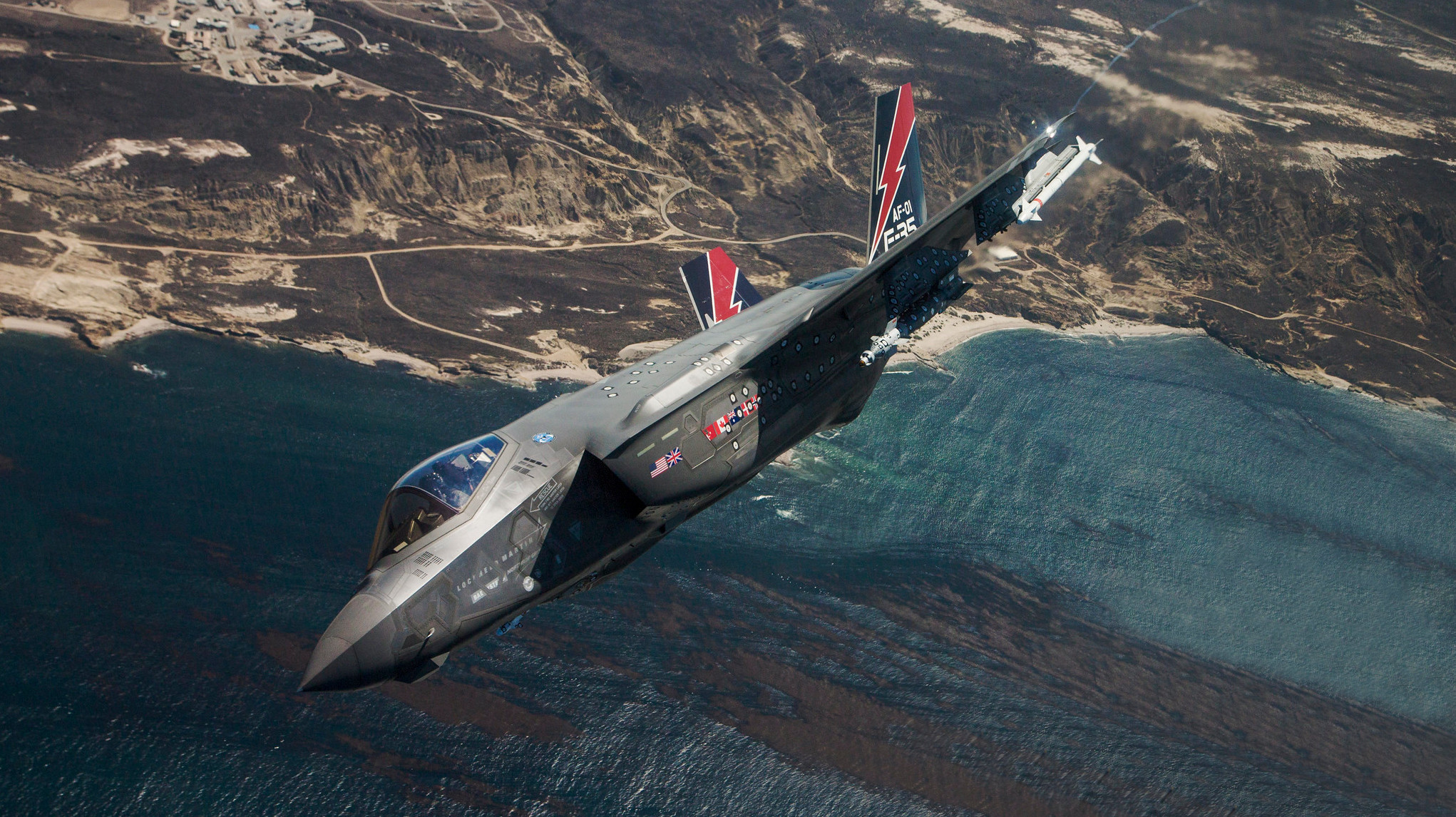F-35 To Go To School For Trillion-Dollar Planes That Can't Shoot Good
You can give the military an unlimited budget and over 14 years to make a good airplane and they'll come back with the F-35: a fighter jet with 13 "must-fix" issues, 873 software issues, and a gun that doesn't shoot straight, according to the latest Pentagon report.
The good news: the F-35 can fly alright now, after a few years of issues taking off. The bad news: its machine gun is unacceptably inaccurate and there's literally hundreds of other issues to still fix.
Here's more on the latest assessment of the plane from Bloomberg:
The 25mm gun on Air Force models of the Joint Strike Fighter has "unacceptable" accuracy in hitting ground targets and is mounted in housing that's cracking, the Pentagon's test office said in its latest assessment of the costliest U.S. weapons system.
[...]
The three F-35 models are all equipped with 25mm guns. The Navy and Marine versions are mounted externally and have acceptable accuracy. But the Air Force model's gun is mounted inside the plane, and the test office "considers the accuracy, as installed, unacceptable" due to "misalignments" in the gun's mount that didn't meet specifications.
The mounts are also cracking, forcing the Air Force to restrict the gun's use. The program office has "made progress with changes to gun installation" to improve accuracy but they haven't been tested yet, according to the report.
The additional 873 software issues are down from 917 reported in September of 2018 after what was supposed to be just one year of testing, but has since been extended another year, according to Bloomberg. But once we get through the gun that can't shoot good and the critical issues and the software issues, it'll be good, right?
In addition, the test office said cybersecurity "vulnerabilities" that it identified in previous reports haven't been resolved. The report also cites issues with reliability, aircraft availability and maintenance systems.
Oh. Well, a Lockheed representative confidently responded to Bloomberg claiming, "reliability continues to improve, with the global fleet averaging greater than 65 percent mission capable rates and operational units consistently performing near 75 percent." A mission capable rate measures how many of the aircraft can perform at least one combat mission at any given time.
As of April 2019, between 63 and 76 percent of Navy Super Hornets were mission capable, according to USNI News. In 2018, then-Secretary of Defense Jim Mattis mandated an 80-percent mission-capable rate for all Navy and Air Force fighter inventories for the 2019 fiscal year. The annual assessment reported "no significant portion"of America's F-35 fleet could sustain the 80 percent mandate.
On top of all of this, it somehow gets worse. Again, from Bloomberg:
The Air Force's F-35 model had the best rate at being fully mission capable, while the Navy's fleet "suffered from a particularly poor" rate, the test office said. The Marine Corps version was "roughly midway" between the other two.
The Air Force and Navy versions are also continuing to have cracks in structural components, according to the report, saying, "The effect on F-35 service life and the need for additional inspection requirements are still being determined."
So the Air Force's F-35's can't shoot straight, the structure of the planes is literally cracking, the fleet is vulnerable to cyber warfare, there are other critical issues abound, the software is a mess, and the military is still going over its inspection process which suggests even more issues with the most expensive weapons system ever developed by the U.S. haunts our future.
Can't they just, I don't know, Google some solutions like I did on my homework?
